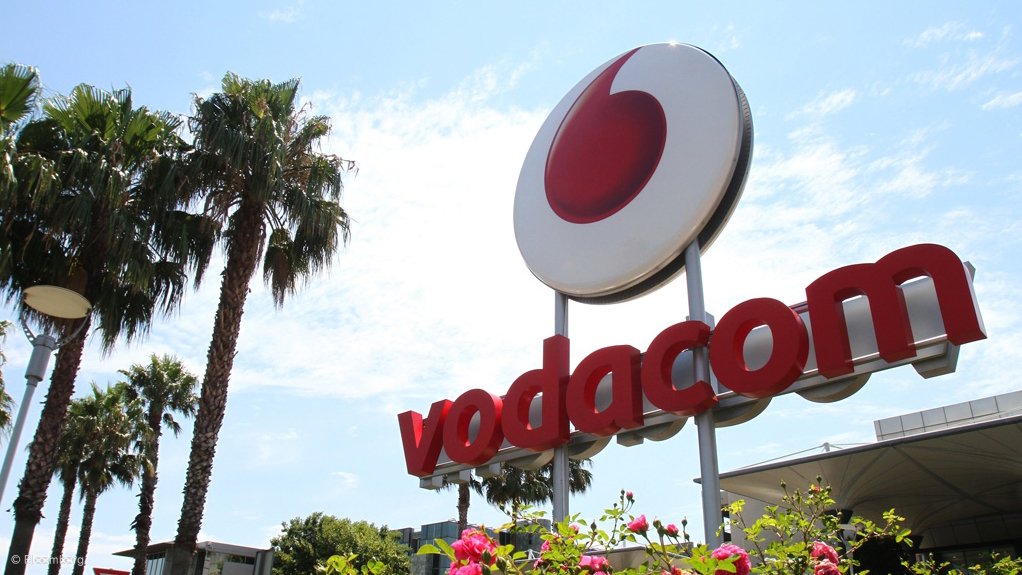Genuine competition regulation will be bedrock for more equitable South Africa – Mavuso
South Africa’s competition landscape is under intense scrutiny following the Competition Tribunal’s recent decision to block telecommunications firm Vodacom’s R14-billion acquisition of a co-controlling stake in Vumatel parent Maziv, despite the merging parties agreeing to a range of additional conditions sought by the authorities.
The decision threatens a R10-billion investment into fibre networks in underserviced parts of South Africa, and risks halting broader industry consolidation, emphasises business organisation Business Leadership South Africa CEO Busi Mavuso.
“Our research shows that 'the ability of national industries to compete in international markets' has hardly featured in merger decisions [by the competition regulator]. However, this element is vital to ensuring South Africa’s export competitiveness.
“It is essential that our regulators maintain their focus on fostering genuine competition and stimulating meaningful economic growth. This will provide a bedrock for a more equitable South Africa,” she says.
Further, the reliance by the Competition Commission on “the promotion of a greater spread of ownership, in particular to increase the levels of ownership by historically disadvantaged persons and workers within that market” can be seen as misguided, she notes.
“Legislation, such as the Broad-based Black Economic Empowerment Act, should drive transformation. Using competition regulation in this way risks flying against the objectives of other legislation,” Mavuso says.
She adds that one of the most egregious examples of the Competition Commission failing to balance public-interest considerations was in its initial blocking of the food retail chain Burger King transaction. Burger King was to be sold by majority black-owned company Grand Parade Investments (GPI) to a foreign private equity firm.
In statements on the matter, the commission made no reference to public-interest considerations related to employment, or the ability of small and medium-sized enterprises or historically disadvantaged individual- (HDI-) owned firms to effectively enter, participate in or expand within the market.
“If HDI-owned firms are prevented from exiting their investments, they cannot free up capital for other investment opportunities, which effectively prevents them from competing or creating value for their investors.”
GPI had its competitiveness damaged as a black-owned company, and the precedent damaged the competitiveness of HDI-owned investment firms in general.
The Department of Trade, Industry and Competition and the parties reached an out-of-court arrangement, which included imposing an employee share ownership trust.
“But the damage was done. The arbitrariness of how public interest considerations were applied was clear for all to see,” Mavuso says.
In the Vodacom-Maziv case, the Competition Tribunal has yet to release its reasons for blocking the deal, although they are largely expected to relate to concerns about market concentration.
However, not all market concentration is created equally. In certain sectors, notably renewable energy and telecommunications, concentrated players are better positioned to invest in the infrastructure necessary for growth and inclusion. They can achieve the economies of scale needed for lower prices and more efficient operations, she notes.
In this case, having larger players is not anti-competitive because it stimulates a more competitive economy overall, she emphasises.
“The arbitrariness of how public interest considerations are applied appears to be particularly glaring in the Vodacom-Maziv case.
“The merging parties had committed to investing at least R10-billion and passing at least one-million homes in lower-income areas over five years, providing high-speed Internet to over 600 adjacent schools and police stations at no cost, creating up to 10 000 new jobs, and establishing a R300-million enterprise and supplier development fund to prioritise SME development.”
These proposals die with the deal the tribunal blocked. The cost of this regulatory overreach will be paid disproportionately by South Africa’s poor, Mavuso avers.
While the integration of public interest considerations into competition policy is imperfect, it demonstrates the policy's potential to drive economic transformation by ensuring large corporations positively contribute to the communities in which they operate.
However, by integrating public interest considerations into competition assessments of mergers and acquisitions, the policy creates an unduly complex regulatory environment, Mavuso highlights.
This deters foreign investment.
“Merger and acquisition evaluations, based on their social impact, can result in investors viewing the regulatory risks as too high, while adding public-interest elements increases costs, which erodes South Africa’s ability to attract investment.”
There is also growing criticism about the efficacy of the competition policy’s enforcement mechanisms in the face of anti-competitive practices. While there have been some prosecutorial successes, the current framework may not be sufficient to address emerging challenges, she adds.
“Competition regulation needs to go back to its core objective of fostering competition and thereby ensuring that consumers have access to choice and are free to exercise their choice, which leads to clear public benefits.
“The economy becomes more competitive, every point of supply chains becomes cheaper, consumers are better off and South African final products are more competitive in international markets.”
There needs to be a rational and transparent approach to applying competition policy to create a predictable environment and reduce risk for those businesses operating in South Africa in those considering transactions. This would maximise public interest, Mavuso says.
Article Enquiry
Email Article
Save Article
Feedback
To advertise email advertising@creamermedia.co.za or click here
Announcements
What's On
Subscribe to improve your user experience...
Option 1 (equivalent of R125 a month):
Receive a weekly copy of Creamer Media's Engineering News & Mining Weekly magazine
(print copy for those in South Africa and e-magazine for those outside of South Africa)
Receive daily email newsletters
Access to full search results
Access archive of magazine back copies
Access to Projects in Progress
Access to ONE Research Report of your choice in PDF format
Option 2 (equivalent of R375 a month):
All benefits from Option 1
PLUS
Access to Creamer Media's Research Channel Africa for ALL Research Reports, in PDF format, on various industrial and mining sectors
including Electricity; Water; Energy Transition; Hydrogen; Roads, Rail and Ports; Coal; Gold; Platinum; Battery Metals; etc.
Already a subscriber?
Forgotten your password?
Receive weekly copy of Creamer Media's Engineering News & Mining Weekly magazine (print copy for those in South Africa and e-magazine for those outside of South Africa)
➕
Recieve daily email newsletters
➕
Access to full search results
➕
Access archive of magazine back copies
➕
Access to Projects in Progress
➕
Access to ONE Research Report of your choice in PDF format
RESEARCH CHANNEL AFRICA
R4500 (equivalent of R375 a month)
SUBSCRIBEAll benefits from Option 1
➕
Access to Creamer Media's Research Channel Africa for ALL Research Reports on various industrial and mining sectors, in PDF format, including on:
Electricity
➕
Water
➕
Energy Transition
➕
Hydrogen
➕
Roads, Rail and Ports
➕
Coal
➕
Gold
➕
Platinum
➕
Battery Metals
➕
etc.
Receive all benefits from Option 1 or Option 2 delivered to numerous people at your company
➕
Multiple User names and Passwords for simultaneous log-ins
➕
Intranet integration access to all in your organisation




















